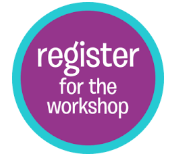Powerful Tools for Caregivers (PTC) and all materials were developed over 3 years of pilot testing, refinement and evaluative research to assess the program’s effectiveness.  Initiated through grant funding, the program has been offered since 1998 in the United States. There are 3,000 trained PTC Class Leaders in 40 states as of 2015. Since the program’s inception, Powerful Tools for Caregivers materials have reached over 80,000 caregivers.
Initiated through grant funding, the program has been offered since 1998 in the United States. There are 3,000 trained PTC Class Leaders in 40 states as of 2015. Since the program’s inception, Powerful Tools for Caregivers materials have reached over 80,000 caregivers.
PTC is based on the highly successful Chronic Disease Self-Management Program developed by Dr. Kate Lorig and her colleagues at Stanford University. PTC provides caregivers with tools and strategies to better handle the unique challenges they face.The 6-week class has been shown to have a positive impact on caregiver health for a diverse group of caregivers including rural, ethnic minorities, adult children of aging parents, well-spouses/partners, caregivers at differing stages in their care-giving role, living situations, financial and educational backgrounds.
Retrieved from Powerful Tools for Caregivers Website
Session 1
- Challenges of Caregiving
- Managing Self-Care: Principles
- Using Community Resources
- Making an Action Plan
Session 2
- Feedback and Solution-Seeking
- Managing Caregiving Stress
- Identifying Signs and Sources of Caregiver Stress
- Taking Action: Stress Reducers
- Using Positive Self-Talk
- Breathing for Relaxation
- Making an Action Plan
Session 3
- Feedback and Solution-Seeking
- Good Communication Skills: How to Best Express Yourself Using “I” Messages
- Avoiding “Hidden You” Messages
- Progressive Relaxation
- Making an Action Plan
Session 4
- Feedback and Solution-Seeking
- Being Assertive, Not Aggressive
- Communication: DESC
- Aikido Communication Style
- Making an Action Plan
Session 5
- Feedback and Solution-Seeking
- Listening to Our Emotions
- Dealing with Anger and Guilt
- Dealing with Depression
- Guidelines for Managing Emotions
- Guided Imagery Relaxation
- Making an Action Plan
Session 6
- Feedback and Solution-Seeking
- The Transition Process
- The Family Meeting
- Using the Power of Optimism
- Future Goals and Action Plans
- Sharing Accomplishments
